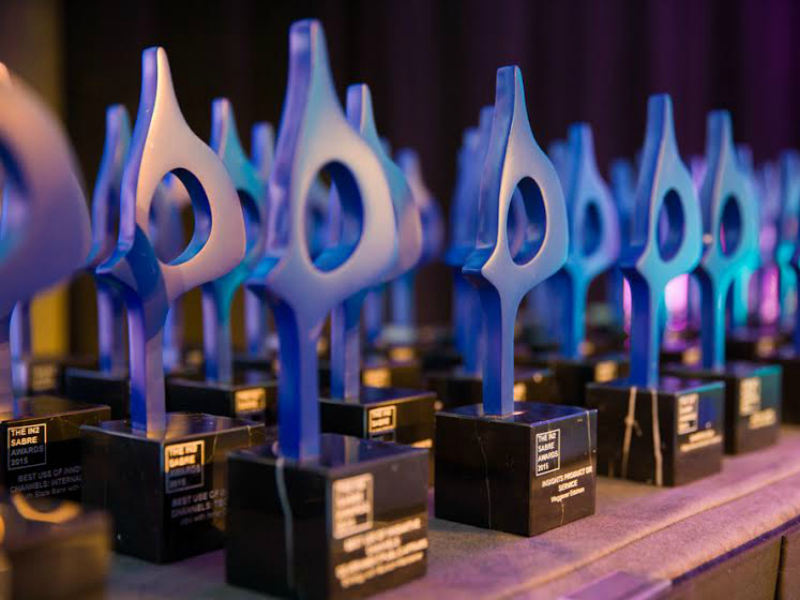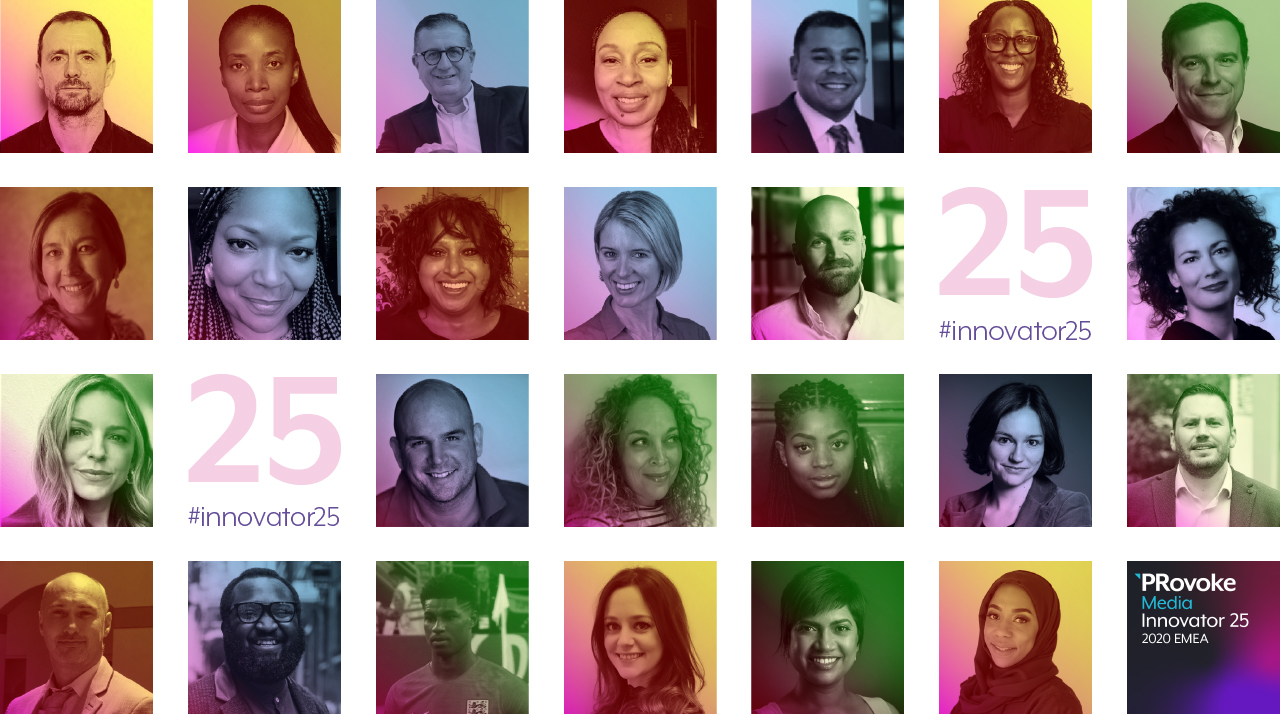
The Innovation SABRE Awards — North America 2020
Showcase your innovation. Don't miss your last chance to enter November 4!

 Podcasts
PodcastsCatch the latest PR news & updates with PRovoke Media's PR Podcasts. Lifting the lid on key industry stories & trends, join our listeners of PR podcasts today.
 Videos
VideosLatest video interviews and campaigns from PRovoke Media, previously known as the Holmes Report.
Long-form journalism that analyzes the issues, challenges and opportunities facing the business and practice of PR.
 Profiles & Interviews
Profiles & InterviewsExplore PR profiles and interviews with leaders from the marketing and PR worlds.
 Crisis Review
Crisis ReviewPR Crisis & Business Crisis review. PRovoke Media's annual analysis of the top reputation crises to rock the corporate sector. Read on here.
 Coronavirus
CoronavirusPRovoke Media's coverage of the Covid-19 crisis, focusing on corporate communication, public affairs & PR industry fallout.
 Trend Forecasts
Trend ForecastsPRovoke Media's PR Trends round up. PRovoke Media's annual forecast of PR trends and news that will impact the PR world in the year ahead...
 Social & Digital
Social & DigitalDedicated to exploring the new frontiers of PR as it dives deeper into social media, content and analytics.
 Technology
TechnologyOur coverage of key technology PR trends and challenges from around the world of digital communications.
 Consumer
ConsumerFrom brand marketing to conscious consumerism, coverage of key marketing and PR trends worldwide.
 Employee Engagement
Employee EngagementPRovoke Media's coverage, analysis and news around the rapidly-shifting area of employee engagement and internal communications.
 Sports Marketing
Sports Marketing Sports PR news, diversity & inclusion trends, views and analysis from PRovoke Media. Subscribe today for the very latest in the world of sports communications.
 Global PR Agency Rankings
Global PR Agency RankingsPRovoke Media's definitive global benchmark of global PR agency size and growth.
Enter PRovoke Media's 2024 Global 250 Agency Ranking and/or our Agencies of the Year competitions now.
 Agencies of the Year
Agencies of the YearPRovoke Media's annual selections for PR Agencies of the Year, across all of the world's major markets.
 Innovator 25
Innovator 25PRovoke Media profiles marcomms innovators from across North America, EMEA and Asia-Pac.
 Creativity in PR
Creativity in PRIn-depth annual research into the PR industry's efforts to raise creative standards.
 Asia-Pacific Communication Index
Asia-Pacific Communication IndexAPACD/Ruder Finn annual study of Asia-Pacific in-house communications professionals.
 SABRE Awards
SABRE AwardsThe world's biggest PR awards programme, dedicated to benchmarking the best PR work from across the globe.
 PRovokeSummit Global
PRovokeSummit GlobalThe biggest PR conference of the year, a high-level forum designed to address the critical issues that matter most.
 PRovoke Media Regional Series
PRovoke Media Regional SeriesA global network of conferences that explore the innovation and disruption that is redefining public relations.
 Agencies of the Year
Agencies of the YearUnrivalled insight into the world's best PR agencies, across specialist and geographic categories.
 Roundtables
RoundtablesOur Roundtables bring together in-house comms leaders with PR firms to examine the future of communications.
 Agency Playbook
Agency PlaybookThe PR industry’s most comprehensive listing of firms from every region and specialty
.jpg) All Jobs
All JobsFind the latest global PR and communications jobs from PRovoke Media. From internships to account executives or directors. See all our PR jobs here.
PRovoke Media's editorial series published in collaboration with partners.

Ade Onilude is not as widely known in PR circles as leaders of some other networking organisations, being far too modest to blow her own trumpet, but over the past decade she has thoughtfully built Women in Marketing to become a true global community, not only for some of the most respected female marketers in the world, but also nurturing and celebrating emerging talent. This year, she introduced the PR communicator of the year award to the global Women in Marketing awards that annually promote, recognise and celebrate women’s achievements in the industry, broadening the social enterprise’s scope to recognise the critical role of PR for brands, especially in 2020. Onilude started her career in fashion marketing, and before founding WiM was chair of the Chartered Institute of Marketing’s marketing communications forum. She has been on the Power List of Black Women in Europe and was honoured with a World of Difference 100 award by The International Alliance for Women in Washington DC for her contribution to women in marketing.
Where is the most urgent need for innovation within the PR/communications industry?
There has been a proliferation of self-publishing by individuals, such as bloggers and v-bloggers – people who are outside of the media and PR industry. Brands see the power of engaging with these influencers to sell their services and products. The PR and communication industry model has to adapt and evolve to better monetise the value of articles/features/news and stories that drive sales, positive behavioural change and support businesses doing good.
How would you describe the communications/PR industry's level of innovation compared to other marketing disciplines: ahead, lagging or about the same?
Communications, marketing and PR are moving forces that are constantly changing. Agencies and organisations that are agile and can adapt quickly to test and trial new ways of engaging audiences will survive. Theories and methodologies will not always fit with the changing environment and landscape. There are some consultants and agencies within PR that are innovating and achieving successful results.
How have the events of 2020 impacted innovation in the PR and communications industry?
How we are working now within the pandemic has shifted, with the use of more technology, virtual engagement, and inspirational challenges lead by the sector and by individuals. The PR and communication industry has had to change, using more digital communications and social media to survive. Innovation has been born from this disruption and chaos as so many channels generally used for PR and communications are unavailable. People have had to adapt and change, so new ways of working, thinking and creating have enabled new and different approaches to be implemented.
Where is the PR industry's greatest opportunity for taking the lead on innovation?
Communication is the bedrock of behavioural change, whether to inspire you to give up drinking (Dry October) or staying at home to save the NHS. The ‘how’ and ‘what’ we deliver as critical communications to audiences, and their responses, can save lives. Innovation and shifts in attitudes, behaviour and actions can be led by the PR sector, and can achieve good outcomes for all of humankind.
What is the ideal working scenario for innovation?
Collaboration, co-ordination, effective communication.
What is the most innovative comms/marketing initiative you've seen this year?
2020 has been a challenging year where health and wellbeing has taken prominence, hence there is more than one example I’d like to highlight. The first is centurion Sir Major Tom Moore, who walked to raise £14 million for the NHS was achieved because the story captured so many people’s hearts and minds. This was apt, given perceptions of the older generation and especially the impact of the pandemic on this demographic.
Mental First Aid England’s campaign focusing on mental wellbeing has been of particular importance on a personal level. I was asked to support their My Wholeself campaign at the start of 2020 before lockdown and was impressed how it adapted messaging to incorporating working from home, acting as a go-to for practical advice for employers and employees. This continued with the global impact of BLM, where MHFA England once again adapted their messaging to highlight the importance of factoring in race.
Any habit/activity that you have added to your life this year that you hope to take forward post-pandemic?
Factoring in digital detoxing, it’s important to factor in ‘me time’ and switching off: burnout is real. Going for a walk and being in touch with nature allows for a clearer headspace.
How can the PR industry make real progress in diversity, equity and inclusion (DE&I) and what are the biggest obstacles?
The business case for D&I has been well documented, but the challenge will be sustainability in terms of action, organisations internal cultures, leadership, learning and unlearning behaviours, accountability, recruitment and retention. This not a quick fix. Time will tell.
What are you thinking about most these days?
Humanity.
Bold prediction for 2021…
A post pandemic world where “freedom” and hugs are the norm.







Intelligence and insight from across the PR world.
About PRovoke Media Contact Us Privacy & Cookie PolicyWe feel that the views of the reader are as important as the views of the writer. Please contact us at [email protected]
Signup For Our Newsletter Media Kits/Editorial Calendar Jobs Postings A-Z News Sitemap© Holmes Report LLC 2024